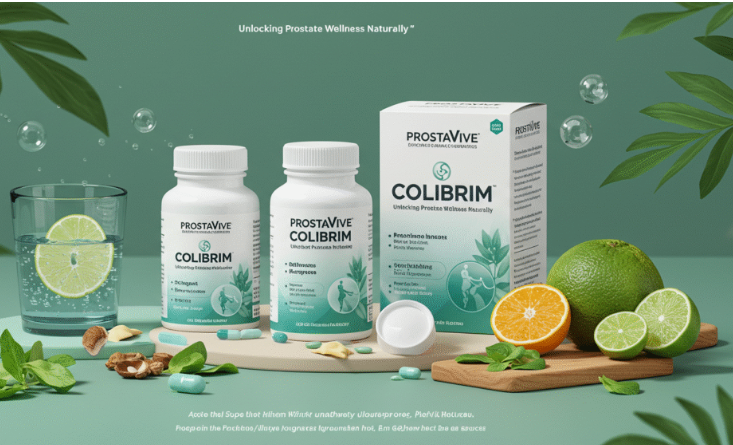Health
Lyposingrass: The Natural Marvel Redefining Wellness and Sustainability

In recent years, the spotlight on natural and sustainable resources has intensified. One term rapidly gaining traction in eco-conscious and wellness communities is lyposingrass. Though relatively new to mainstream audiences, lyposingrass is poised to revolutionize sectors ranging from agriculture to health. But what exactly is it? Why is everyone talking about lyposingrass, and how does it impact your life?
Let’s explore everything you need to know about this remarkable green innovation.
What is Lyposingrass?
Lyposingrass is a unique, fast-growing plant species known for its resilient nature, high nutritional value, and multifunctional applications. Originally cultivated in specific regions of Southeast Asia, it has since gained global interest due to its environmental and health benefits.
Unlike common grasses, lyposingrass has a deep root structure that allows it to thrive in various climates, making it ideal for drought-prone areas and regenerative agriculture. Whether you’re interested in eco-farming, natural supplements, or sustainable solutions, lyposingrass offers something valuable.
Origins and Natural Habitat of Lyposingrass
The term “lyposingrass” may sound like a new-age invention, but its roots are deeply connected to ancient natural systems. Indigenous cultures have long harnessed its qualities for medicinal and agricultural purposes. It thrives best in tropical and sub-tropical climates, growing rapidly without the need for synthetic fertilizers.
Lyposingrass is naturally resistant to pests, which eliminates the dependency on harmful pesticides. This makes it a front-runner in organic farming and eco-friendly land management practices.
Key Benefits of Lyposingrass
1. Health and Nutritional Value
Lyposingrass is packed with micronutrients, antioxidants, and chlorophyll. It’s becoming a sought-after ingredient in herbal teas, green powders, and detox supplements.
Some of the benefits include:
-
Detoxification support
-
Natural energy boost
-
Anti-inflammatory properties
-
Immune system enhancement
Many wellness brands are now incorporating lyposingrass extracts into their superfood blends due to its high bioavailability and nutrient density.
2. Soil Regeneration
One of the major reasons why lyposingrass is used in sustainable farming is its ability to rejuvenate soil. Its deep root network aerates the soil and promotes microbial activity. This improves the land’s productivity over time without requiring chemical treatments.
3. Carbon Sequestration and Climate Impact
Environmental scientists are examining lyposingrass for its carbon capturing capabilities. Due to its rapid growth and biomass production, it acts as a natural carbon sink, helping combat the effects of climate change.
Uses of Lyposingrass in Different Sectors
Agriculture and Landscaping
Lyposingrass is often used as a cover crop or in erosion control projects. It stabilizes soil, reduces runoff, and improves water retention—vital for sustainable land management.
Wellness Industry
From green juices to dietary supplements, the wellness market is capitalizing on the antioxidant-rich profile of lyposingrass. It is commonly dried and ground into a fine powder for easy consumption.
Livestock Feed
Its high fiber and protein content make lyposingrass an ideal feed for cattle, goats, and poultry, especially in regions where traditional feed sources are scarce or expensive.
Natural Packaging and Craft
Innovative businesses are using processed lyposingrass fibers for biodegradable packaging and eco-friendly crafts. This trend is especially popular in zero-waste product lines.
How to Cultivate Lyposingrass
Lyposingrass requires:
-
A warm climate with moderate rainfall
-
Well-drained soil
-
Minimal fertilization
Its low maintenance and fast-growing nature make it perfect for urban gardens, community farms, and commercial fields alike. Once planted, it matures within a few weeks and can be harvested multiple times a year.
For gardeners and farmers looking for sustainable, low-cost crops, lyposingrass is a game-changer.
Common Myths About Lyposingrass
Despite its rising popularity, misinformation surrounds. Let’s debunk a few myths:
“It’s just another fancy grass.”
False. Lyposingrass has a unique biochemical composition that sets it apart from common grasses like wheatgrass or lemongrass.
“It doesn’t have scientific backing.”
Research on lyposingrass is ongoing, but early findings support its nutritional and environmental benefits.
“It’s only for farmers or herbalists.”
Wrong again. From nutrition enthusiasts to climate activists, appeals to a wide range of individuals and industries.
Future of Lyposingrass in the Green Economy
As the world continues to move towards sustainability and natural alternatives, the role of lyposingrass will expand. Governments and private sectors are investing in research and cultivation projects, recognizing its potential to enhance food security, combat climate change, and support wellness initiatives.
Companies may soon introduce into textiles, biodegradable plastics, and pharmaceuticals. Its rapid regeneration rate and versatility make it ideal for eco-innovation.
How to Add Lyposingrass Into Your Life
Interested in trying it out for yourself? Here are a few ideas:
-
Green Smoothies: Mix lyposingrass powder with other greens for a detox drink.
-
Tea: Brew dried lyposingrass leaves for a calming, anti-inflammatory tea.
-
Natural Fertilizer: Use composted clippings to enrich garden soil.
-
Landscaping: Replace traditional grass with this low-maintenance alternative for a green, healthy lawn.
When sourcing lyposingrass products, always check for organic certification and ethical harvesting practices to ensure quality and sustainability.
Final Thoughts
Lyposingrass is not just a passing trend—it represents the shift toward a more natural, resilient, and sustainable world. Whether you’re a health-conscious individual, an eco-minded gardener, or a policymaker looking to support greener initiatives, deserves your attention.

Health
Prostavive Colibrim: The Natural Solution for Men’s Health

Men’s health is a topic that often gets overlooked. Many men face unique health challenges, yet they may hesitate to seek help or discuss their concerns openly. From prostate health to energy levels, these issues can impact not just physical well-being but also emotional and mental vitality. It’s time for a change—a shift towards proactive solutions that empower men to take control of their health.
Enter Prostavive Colibrim, an innovative supplement designed specifically with men’s health in mind. This natural solution targets common problems faced by many men today while promoting overall wellness. Let’s dive deeper into how Prostavive Colibrim could be the answer you’ve been searching for on your journey to better health.
The Benefits of Prostavive Colibrim
Prostavive Colibrim offers a natural approach to enhancing men’s health. It targets key areas that often concern men as they age.
One of the standout benefits is its ability to support prostate health. A healthy prostate contributes significantly to overall well-being, reducing discomfort and promoting better urinary function.
Additionally, Prostavive Colibrim can improve energy levels. Many users report feeling more vibrant and active after incorporating it into their daily routines.
The supplement also supports hormonal balance, which is crucial for maintaining vitality and mood stability. This aspect helps combat fatigue and boosts confidence.
Moreover, its natural ingredients work synergistically to enhance immune function, ensuring your body stays resilient against everyday stressors.
With consistent use, many find that Prostavive Colibrim becomes an essential part of their wellness journey.
Key Ingredients and How They Work
Prostavive Colibrim stands out thanks to its blend of powerful, natural ingredients. Each component plays a vital role in promoting men’s health.
Saw palmetto is one key ingredient known for supporting prostate health. It helps reduce symptoms associated with benign prostatic hyperplasia, allowing for better urinary flow.
Another important element is pygeum africanum. This herbal extract has been used traditionally to enhance urinary function and minimize discomfort related to an enlarged prostate.
Pumpkin seed oil also makes a significant contribution. Rich in zinc, it supports hormonal balance while offering essential fatty acids that promote overall well-being.
Nettle root rounds out the formula by providing anti-inflammatory benefits. This aids in reducing any swelling or irritation within the prostate area.
Together, these ingredients create a comprehensive approach to men’s health, ensuring users experience optimal support throughout their daily lives.
Customer Testimonials and Success Stories
Customer testimonials can be a powerful testament to the effectiveness of Prostavive Colibrim. Many users share their experiences, highlighting significant improvements in their overall well-being.
One satisfied customer mentioned feeling more energetic and revitalized after just a few weeks of use. He noted that it not only supported his prostate health but also enhanced his performance in everyday life.
Another user shared how he noticed a remarkable difference in his sleep quality. With less frequent trips to the bathroom at night, he could finally enjoy uninterrupted rest.
Success stories flood social media platforms as men express gratitude for regaining confidence and vitality. These real-life accounts inspire others to take charge of their health with Prostavive Colibrim’s natural benefits. Each story reflects hope and empowerment on the journey toward better men’s health.
Comparison with Other Men’s Health Supplements
When looking at men’s health supplements, Prostavive Colibrim stands out for its unique formulation. Unlike many products that rely heavily on synthetic ingredients, this supplement harnesses the power of natural components.
Many competitors focus solely on boosting testosterone levels or enhancing libido. However, Prostavive Colibrim offers a more holistic approach. It targets multiple aspects of men’s health, including prostate support and urinary function.
Some popular alternatives may contain fillers and artificial additives that can lead to unwanted side effects. In contrast, Prostavive Colibrim emphasizes purity and quality in its ingredients.
Additionally, while other supplements often come with complicated dosing instructions, Prostavive Colibrim simplifies your routine with clear guidelines. This ease of use makes it accessible for men who are new to health supplementation or those seeking a straightforward solution.
The balance between efficacy and safety is where Prostavive Colibrim truly excels in comparison to its counterparts.
How to Incorporate Prostavive Colibrim into Your Daily Routine
Incorporating Prostavive Colibrim into your daily routine is simple and seamless. Start by taking it at the same time each day. This consistency helps reinforce the habit, making it easier to remember.
Consider pairing it with a meal; this can enhance absorption and minimize any potential stomach discomfort. Whether it’s breakfast or dinner, find what works best for you.
Set reminders on your phone or use a pill organizer to keep track of your dosage. These tools add structure to your routine without overwhelming you.
Engaging in regular physical activity can complement the benefits of Prostavive Colibrim. A brisk walk or light exercise can elevate mood and energy levels, creating an ideal environment for improved health.
Take a moment each day to reflect on how you’re feeling since starting this supplement. Noting changes in well-being can motivate you to stay committed long-term.
Tips for Maintaining Overall Men’s Health
Maintaining overall men’s health requires a holistic approach. Start with regular physical activity. Aim for at least 30 minutes of exercise most days to boost energy and mood.
Nutrition plays a crucial role too. Incorporate plenty of fruits, vegetables, lean proteins, and whole grains into your diet. Limit processed foods and sugars for better vitality.
Don’t underestimate the power of hydration. Drink enough water throughout the day to keep your body functioning properly.
Mental well-being is just as important as physical health. Practice stress management techniques like meditation or yoga to foster inner peace.
Regular check-ups are essential for early detection of potential issues. Stay proactive about screenings that suit your age and lifestyle.
Prioritize quality sleep by establishing a routine that allows you to recharge effectively each night.
Conclusion
Men’s health is a multifaceted issue that deserves attention and care. Prostavive Colibrim stands out as a natural solution designed to tackle various aspects of men’s well-being, particularly when it comes to prostate health.
With its unique blend of powerful ingredients, this supplement offers numerous benefits. Users have reported improvements in their overall vitality and comfort levels. The key components work synergistically to support hormonal balance and promote healthy prostate function.
Customer testimonials highlight the positive experiences many have had with Prostavive Colibrim. Real stories of success reflect how individuals are reclaiming their energy and confidence after integrating this product into their routines.
When compared with other men’s health supplements, Prostavive Colibrim shines due to its natural formulation and effectiveness. It differentiates itself from competitors by focusing on holistic wellness rather than merely addressing symptoms.
Incorporating Prostavive Colibrim into daily life is straightforward. Whether taken alongside meals or as part of your morning routine, finding what works best for you can enhance adherence and results.
Beyond supplementation, maintaining overall men’s health involves regular exercise, a balanced diet, hydration, stress management techniques like meditation or yoga—practices that contribute significantly to long-term well-being.
Prioritizing these aspects while considering the benefits of Prostavive Colibrim may lead to improved quality of life for many men seeking natural solutions for better health outcomes.
-

 Technology3 months ago
Technology3 months agoValgensin: The Future of Digital Learning
-

 Blog3 months ago
Blog3 months agoWhat the Last Page of The Great Gatsby Tells Us About Dreams and Disillusionment
-

 Technology7 months ago
Technology7 months agoSylveer: A Rising Name in Technology and Sustainable Innovation
-

 Health3 months ago
Health3 months agoProstavive Colibrim: The Natural Solution for Men’s Health
-

 Blog2 months ago
Blog2 months agoBebasinindo: Connecting Readers Through Engaging Content
-

 Blog3 months ago
Blog3 months agoPicks from Dolagim Jelpak: What to Read Next Selection for Every One
-

 Blog3 months ago
Blog3 months agoBetametacron: What Sets It Apart?
-

 Technology7 months ago
Technology7 months agoMarkiseteppe: The Perfect Outdoor Shading Solution